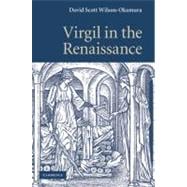
Note: Supplemental materials are not guaranteed with Rental or Used book purchases.
Purchase Benefits
What is included with this book?
| Illustrations | p. x |
| Acknowledgements | p. xi |
| Texts and abbreviations | p. xii |
| Introduction | p. 1 |
| Method | p. 3 |
| Lacunae | p. 6 |
| Models | p. 8 |
| Plan | p. 10 |
| Publication | p. 13 |
| Virgil with an i | p. 15 |
| Poliziano's proof | p. 15 |
| How they reacted to Poliziano's bombshell | p. 18 |
| The market for Virgil editions and commentaries | p. 20 |
| The state of publishing in England; or Did the Reformation make any difference? | p. 27 |
| Servius and Donatus: the authority of antiquity | p. 31 |
| Landino vs. Badius: originality vs. utility | p. 35 |
| Valeriano: the scholarly argument for i | p. 37 |
| Innovation vs. influence | p. 40 |
| Latin: dead language or living? | p. 42 |
| Reputation | p. 45 |
| Patronage and the Eclogues | p. 47 |
| The idea of Virgil and its ancient sources | p. 47 |
| How Virgil got rich | p. 50 |
| Virgil as counselor to the prince | p. 54 |
| Eclogues as encomia | p. 56 |
| Was Virgil a flatterer? | p. 59 |
| Maecenas as the model patron | p. 60 |
| Darkness invisible | p. 64 |
| Imitating Theocritus: the bookishness of Virgilian pastoral | p. 66 |
| Love among the shepherds | p. 69 |
| Christian prophecy and Epicureanism | p. 70 |
| Variety and the low style | p. 73 |
| Variety and the Georgics | p. 77 |
| The ancient tradition of Virgil's erudition | p. 78 |
| Science or poetry? | p. 81 |
| Labor and the plow | p. 82 |
| Looking for the Georgics in Renaissance poetry | p. 83 |
| "Ille ego qui quondam" | p. 85 |
| Generic substitution | p. 87 |
| A spectrum of styles | p. 89 |
| The myth of Virgil's Wheel | p. 90 |
| Style and genre | p. 91 |
| Style and variety | p. 93 |
| Listing variety | p. 95 |
| Virgil as second Nature | p. 96 |
| Morals and minimalism | p. 101 |
| Virgil the reviser | p. 101 |
| Style and character | p. 103 |
| Virgil's chastity | p. 106 |
| Rumors about Virgil's sex life | p. 108 |
| Nisus and Euryalus | p. 109 |
| Virgil's gay eclogue | p. 113 |
| Defense by forgery | p. 115 |
| Perfect poetry | p. 119 |
| Virgil and Ennius | p. 120 |
| Virgil as imitator of Homer | p. 124 |
| Refining Homer | p. 128 |
| Brevity as chastity | p. 129 |
| Defenders of Homer against Virgil | p. 132 |
| Why brevity is better | p. 134 |
| Style: Virgil's last stand | p. 138 |
| Interpretation | p. 143 |
| Virgil's Odyssey | p. 145 |
| Prioritizing episodes | p. 145 |
| Troy in the Odyssey | p. 146 |
| The weight of the underworld | p. 149 |
| The Gates of Sleep | p. 153 |
| Descent by murder | p. 157 |
| Character by example | p. 163 |
| Pluto's daughter: hell as riches | p. 166 |
| Mourir, c'est facile: hell as habit | p. 170 |
| Life in hell | p. 172 |
| Purgatory | p. 173 |
| "Sinfull mire": the moral status of matter | p. 178 |
| Resurrection | p. 181 |
| Imitation: competition or assimilation? | p. 185 |
| Dynastic prophecy | p. 187 |
| Virgil's Iliad | p. 191 |
| Turnus as tragic hero | p. 191 |
| Modern relativism | p. 194 |
| Defining pietas | p. 196 |
| Weighing anger | p. 199 |
| Organizing interpretation I: classroom Techniques | p. 203 |
| Organizing interpretation II: the ideal man theory | p. 208 |
| Organizing interpretation III: repetition and rereading | p. 212 |
| Six-book readers vs. twelve-book readers | p. 215 |
| The renaissance of Virgil's Iliad | p. 220 |
| Camilla | p. 227 |
| The modernity of romance | p. 230 |
| Dido and Lavinia: the importance of Eneas | p. 233 |
| Vegio's sequel: the missing link with the Middle Ages | p. 237 |
| Vegio's influence | p. 247 |
| Epilogue | p. 248 |
| Virgil commentaries in Latin editions, 1469-1599 | p. 252 |
| Virgil commentaries ranked by number of printings | p. 267 |
| Index | p. 282 |
| Table of Contents provided by Ingram. All Rights Reserved. |
The New copy of this book will include any supplemental materials advertised. Please check the title of the book to determine if it should include any access cards, study guides, lab manuals, CDs, etc.
The Used, Rental and eBook copies of this book are not guaranteed to include any supplemental materials. Typically, only the book itself is included. This is true even if the title states it includes any access cards, study guides, lab manuals, CDs, etc.